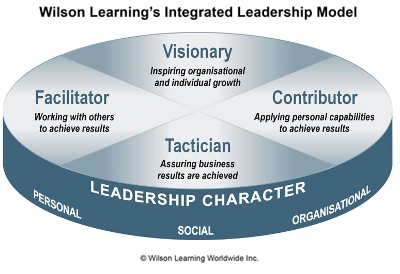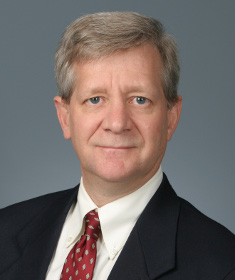D’où viennent vos nouveaux leaders ?
Restaurer les qualités potentielles du leadership pour réussir aujourd’hui et demain

Think about top companies that have made a mark in the last five decades—great products, a lasting brand, and dedicated employees. What companies come to mind? Perhaps you thought of Apple, GE, Microsoft, Boeing, Honda, and a handful of other big names. Now, think about recent examples of companies that have failed or are failing—Enron, Lehman Brothers, or the once mighty Kodak. What's the difference between consistently successful companies and those that fail? To sustain success through good times and bad takes more than good products, marketing and finances—these are necessary but not sufficient. To pull these elements together and outperform the competition year after year requires great leadership. This is the one asset that makes all the difference: leaders with imagination, know-how and highly effective management skills to encourage, inspire and elicit high performance from a well-trained workforce.
If yours is like most companies at this point in time, you may be seeing rising demand and increased business. This is good news, and it means stepping up your game to meet the needs of returning customers. At the same time, you may be looking at a depleted management team, with your middle management ranks especially thin. Of those still left, few may have the training and experience needed as your business goes into higher gear.
How will you meet your need for effective leaders? Yes, there are experienced managers available on the outside, but if the Bureau of Labour Statistics is correct, there will be fewer and fewer such leaders over the next several years, there will be more competition for them and they will be expensive to acquire. A better bet is to build your own bench from among your current employees and first-line managers. Develop your own future leaders, who are already trained in your culture and values, familiar with your markets and customers as well as ready to step into new roles with the right training and preparation.
Building the Bench—Form and Essence
Even with the existence of corporate succession planning and high-potential programmes, individuals who have the character, knowledge and skills to drive high performance within your own team need to be trained. You probably know already who your "high potentials" are; take time to investigate the best qualities and readiness of all possible candidates. To carry out this process, ask yourself what criteria you would use to identify the best people.

A useful model that we have refined over several decades describes leadership excellence as embodied in two critical factors: Essence and Form. The Essence or foundation of leadership can be described in terms of character—values and clarity of purpose. Form is the engine of leadership, the skills and knowledge that enable the leader to get things done and produce the concrete results required for the success of the business unit and the company as a whole.
To understand the vital importance of both factors, recall the notable examples of companies and the leadership that separates them. While both the successful and failed companies had smart people with effective leadership skills, those that were "all Form and no Essence," driven by short-term gain, could not sustain long-term success and negatively impacted their shareholders, employees and customers. The successful companies are driven by leaders who have both Form (the skills and knowledge to produce results) and Essence—character to inspire and lead with values and clarity of purpose.
Building the Bench—Identifying and Growing Leadership Essence
At this point you may be thinking, "Essence is important, but how is it possible to know if a potential leader has the necessary character? And is there a way to develop Leadership Essence or is it one of those characteristics that is either there or not?"
Certainly there are identifiable qualities a potential leader displays that can give clues as to whether he or she has the desired character traits. Take time to observe the behaviours of your potential leaders. Are they focused on delivering value to the customer and the organisation, or offering to help others solve problems, or voluntarily helping others learn something new? When you see such behaviours, you know you have someone who is motivated and empathic and who wants to learn and grow. Directly ask these same people to describe their reasons for choosing a leadership track, listening carefully to ascertain whether their words match their behaviours. No doubt, you'll hear reasons such as "helping people and the organisation grow," as they want to grow themselves. These are great candidates.
There will be others you recognise as undesirable candidates. Such people will not demonstrate Leadership Essence, but will only be looking for promotion, wanting to earn more, gain status or use a leadership position to fulfil career aspirations. These candidates are likely aspiring to power and prestige rather than growing their own skills and character and supporting others in a leadership role.
Let's return to the question of whether Leadership Essence can be learned, developed or taught. As stated earlier, there are sound clues as to whether someone has the fundamental character needed to be a potential leader. Build on that foundation! Individuals can develop their Leadership Essence with the right kinds of assistance, such as assignments and opportunities to work with a mentor—a mature leader who can encourage them to reflect on the experiences of working with other employees, being a team leader, helping others learn and solving leadership problems. With these kinds of experiences and a chance to be thoughtful about what they mean, potential leaders can flex their "character muscles" as they build their functional skills and knowledge. To build your bench, look for and offer these development opportunities for your emerging leaders.
Building Bench Strength—Understanding Leadership Form
It is easy to assume that Form is another way to say "skills" or "competencies." Skills are, of course, critical to achieving goals and results. At a more comprehensive level, Leadership Form refers to the roles that leaders play; the way they live out their Essence. The idea of role focuses attention on the multiple hats leaders wear, and on the need to combine knowledge and skills to ensure effectiveness in each role.
Our perspective, based on both research and experience, is that the skills and knowledge required to execute effective leadership can be defined by four distinct roles: the roles of the Visionary, the Tactician, the Facilitator and the Contributor.
The four roles are complementary, with certain skills and knowledge appropriate to each and integrated to create overall leadership excellence.
The Visionary role provides an anchor in the goals and direction the leader sets for the team. The Visionary keeps the team on course and sets a standard for tracking progress and guiding change if needed. Typical Visionary skills include creating a shared vision, communicating and aligning on organisational strategy as well as leading organisational change.
The Tactician leads activity and practical action to ensure the vision is realised and delivers the business results needed by other business units, customers, and stakeholders. Typical Tactician skills focus on planning for work activities and objectives, setting employee goals and monitoring organisational and employee performance.
As a Contributor, the leader collaborates with other leaders and the team, sharing his or her own special expertise and talent to help the team move ahead on achieving the vision. The Contributor's skills include problem solving, decision making, business and financial acumen as well as creativity and innovation.
And finally, the Facilitator helps coordinate the efforts of all team members and makes sure every team member is involved at the right level and is making the appropriate contribution. The Facilitator, among other things, demonstrates interpersonal versatility, deals with conflict and communicates effectively within and across teams.
Different situations call for emphasising different roles, making it essential that each leader be prepared to execute the skills of each role. First-line supervisors may need to place more emphasis on the Tactician role than the Visionary role, but to keep their teams engaged they must let them know how their work supports the vision of the organisation. A chief executive officer will need to place more emphasis on the Visionary role and less on the Contributor role, leaving most implementation issues to the executive team. However, there will still be important—and oftentimes critical—decisions to be made that require a CEO to draw on his or her Contributor skills. Effective leaders lead from the perspective of all four roles.
The most important step you can take in building your bench is to find and grow those people who display potential for demonstrating the characteristics and skills of Leadership Essence and Form. Each is essential for leadership effectiveness. When combined, they form one strong and versatile set of values and skills that become the foundation of your leadership bench.
Pour en savoir plus, contactez Wilson Learning au 01 47 51 70 70 or rendez-vous sur notre site Internet at WilsonLearning.com.









 Merci de remplir ce formulaire afin de télécharger D’où viennent vos nouveaux leaders ? | Restaurer les qualités potentielles du leadership pour réussir aujourd’hui et demain».
Merci de remplir ce formulaire afin de télécharger D’où viennent vos nouveaux leaders ? | Restaurer les qualités potentielles du leadership pour réussir aujourd’hui et demain».



